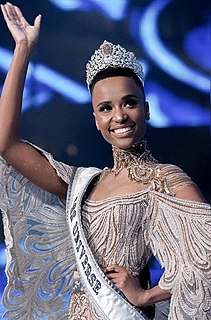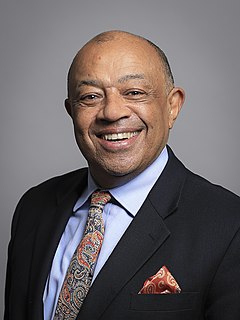A Quote by Zozibini Tunzi
I stand for the education of the South African youth, for equality and representation, as Miss South Africa, I cannot wait to make a contribution to these important social causes.
Related Quotes
We learn that Comrade [President of South Africa Nelson] Mandela has announced in a speech that he hopes for a bright future in South Africa for ‘liberty’ and ‘equality.’ Anyone who has thought about it realizes that liberty and equality are antithetical concepts. You can have one, or you can have the other, but you certainly cannot have both. As to that, either concept is a rather futile goal. Equality is biologically impossible, and liberty is only obtainable in homogeneous populations very thinly spread.
When I was in government, the South African economy was growing at 4.5% - 5%. But then came the global financial crisis of 2008/2009, and so the global economy shrunk. That hit South Africa very hard, because then the export markets shrunk, and that includes China, which has become one of the main trade partners with South Africa. Also, the slowdown in the Chinese economy affected South Africa. The result was that during that whole period, South Africa lost something like a million jobs because of external factors.
It is considered in England and the United States that the Government of South Africa is altogether too harsh with its native peoples. It is sadly humorous to notice that the native in South Africa, however, holds an exactly reverse opinion and the fault he finds with the South African Government is that it is far too lenient in its administration of laws throughout the native populace.
What moved us was not so much what would it do for South Africa, but there has been a great keenness on the Continent that the location of the Pan African Parliament must add to its credibility. And, so we said, fine, it's a contribution to this process of the democratisation of the African Continent.
We do not have a South African as a member of the African Commission. The President of the Commission comes from Mali, the Deputy comes from Rwanda and then we have got all these other members, ordinary commissioners. There is no South African there. And the reason, again, for that is not because we didn't have South Africans who are competent.
A number of African countries came to us and said, we request that South Africa should not field a candidate, because so many other African countries wanted to, and, in any case, South Africa would continue to play a role in terms of building the African Union, and so on. And they actually said, please don't field a candidate, and we didn't. As I have said, it is not because we didn't have people who are competent to serve in these positions.
I am honoured to be asked to take on this role, especially as it comes at such an integral time for our relationship with South Africa and the African continent. There shall be many new challenges and opportunities ahead and I look forward to embracing them with great anticipation [on becoming the UK's high commissioner to South Africa]




































